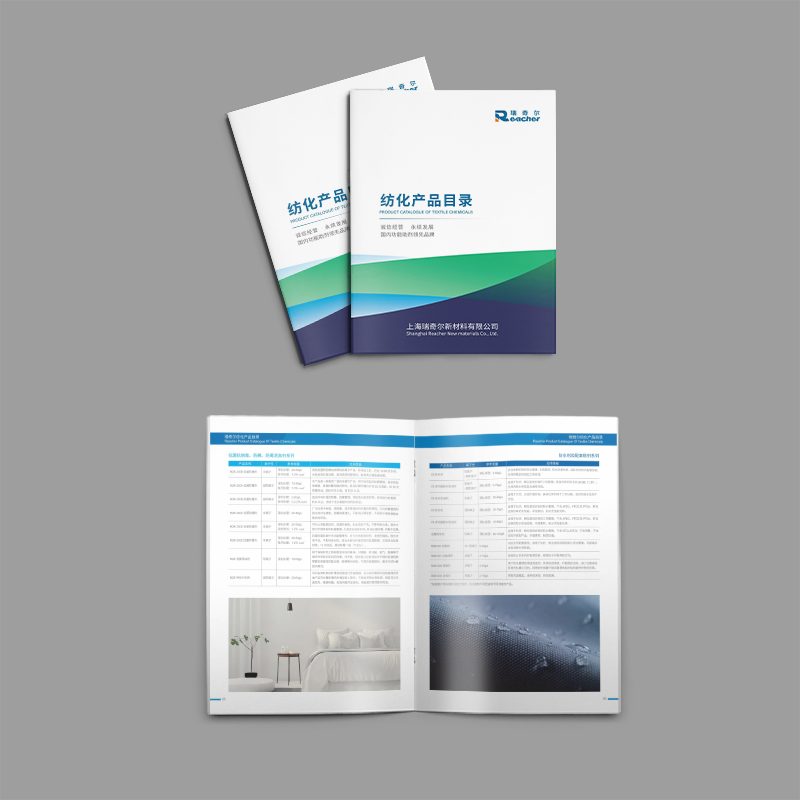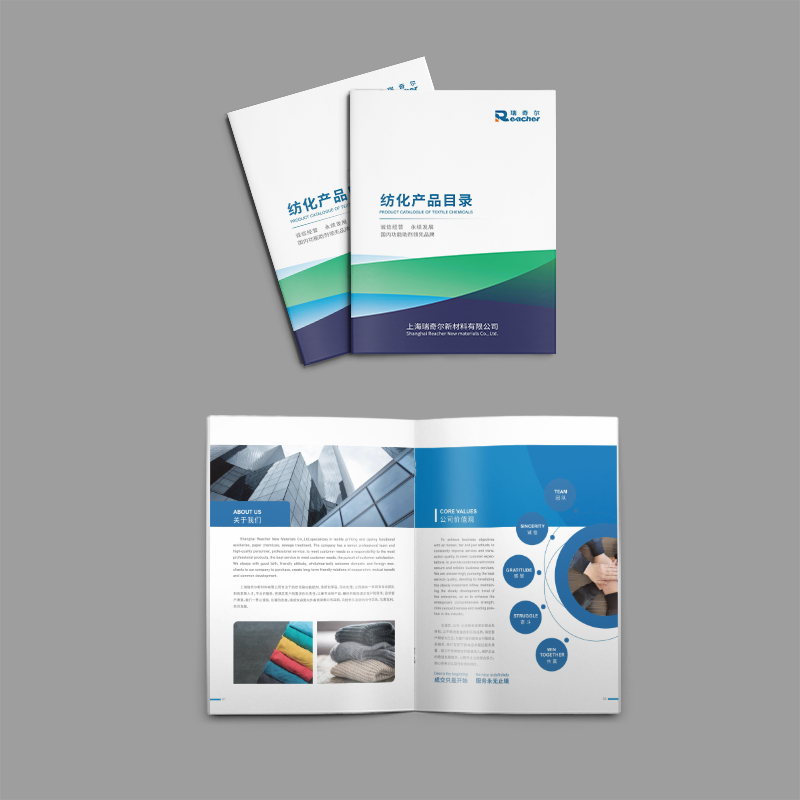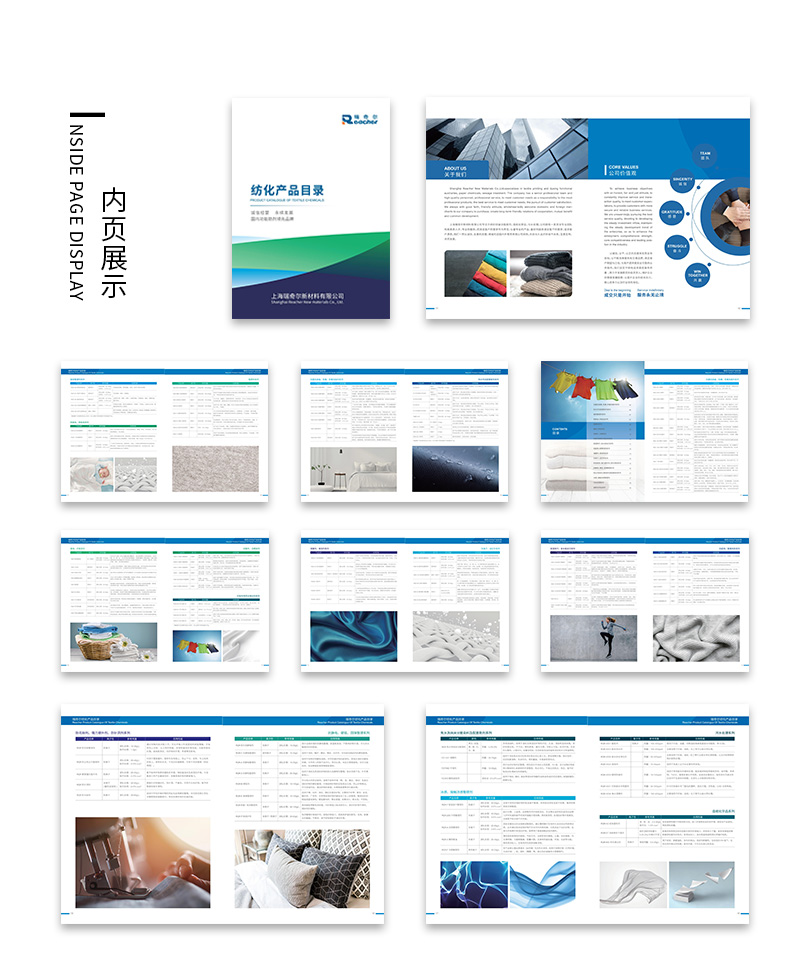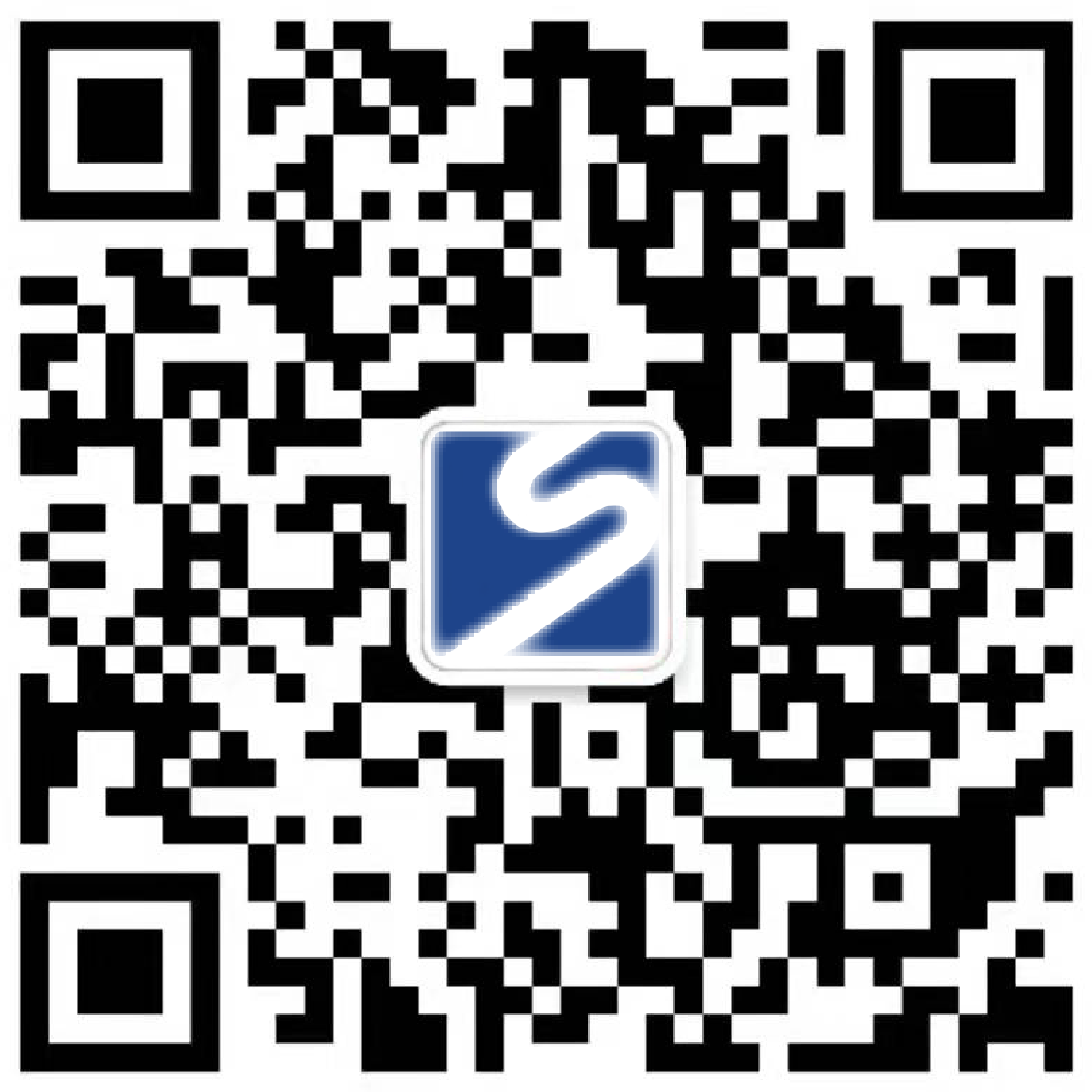Finished size:210*285
Expanded size:420*285
File resolution:300DPI
Design style:Tech Blue Meets Ecological Texture
Binding method:Wireless hardcover
After many years of brochure design, I've noticed that the brochures of foreign trade companies are transitioning from "product lists" to "technology passports.&
After many years of brochure design, I've noticed that the brochures of foreign trade companies are transitioning from "product lists" to "technology passports." A recent example is a textile auxiliaries company in Shanghai — their new brochure, featuring tactile ink and modular design, significantly increased their international orders. Today, let's dissect this brochure and see how startups can leverage design to penetrate global markets.

Design Style: Tech Blue Meets Ecological Texture
In the textile industry, brochures often fall into the trap of just stacking fabrics, but this design introduces a refreshing twist. The cover is made of 120g sugarcane fiber paper, whose rough texture subtly embodies the concept of environmental protection, accompanied by a Pantone 2945C tech blue hot stamping that appears both professional and approachable. The interior pages consistently utilize "molecular chain" visual elements. Data verification shows that using recycled paper reduces the carbon footprint by 42% per booklet, accurately meeting EU environmental regulations.

Design concept: Making chemical parameters "breathe"
There are two main challenges: First is how to visualize the chemical properties of additives; second is how to clearly present various international certification standards. The solution is robust:
Thermochromic ink interaction: Key pages are printed with heat-sensitive inks that reveal antibacterial effectiveness diagrams. Rubbing with a finger shows a red active area, increasing customer engagement time by 58%;
Modular information architecture: Breaks down the product into a three-dimensional coordinate system of "environmental friendliness, wash resistance, safety," making it understandable to non-technical personnel in 3 seconds;
Global certification visualization: Each product is marked with OEKO-TEX, REACH, and other certification symbols from six countries, with QR codes that link directly to electronic certificates.

Printing Techniques: Low Cost, High Quality
Touch Varnish: The cover's LOGO uses selective matte UV, which creates a subtle 0.1mm grainy texture upon friction, increasing the cost by only 5%.
Sewn Binding with Hollow Back: Lab tests show it can withstand 5,000 folding incidents, which is three times the lifespan of traditional perfect binding.
Soy-Based Ink: VOC emissions are 76% lower than traditional inks, certified by SGS.National Insight: Resolving the Trust Issues in Foreign Trade.
China's textile industry is currently transitioning from "OEM export" to "technology export." A brochure has already surpassed the role of a mere product manual, becoming a "technical visa" for conquering international markets. When thermochromic ink activates data at your fingertips, when recycled paper upholds environmental commitments—these design details are precisely the breakthrough points for small and medium-sized foreign trade enterprises to overcome trade barriers.

Powered By 盘企CMS 3.2.2盘企CMS


